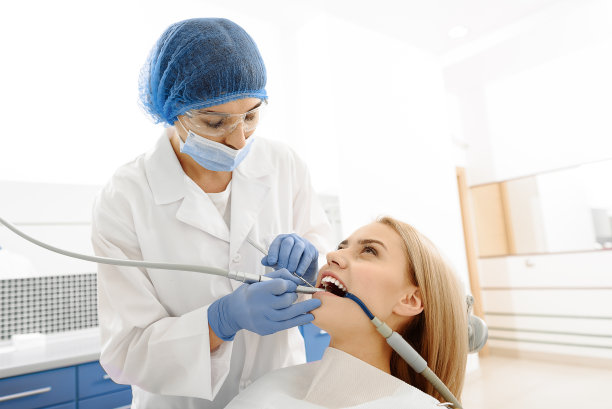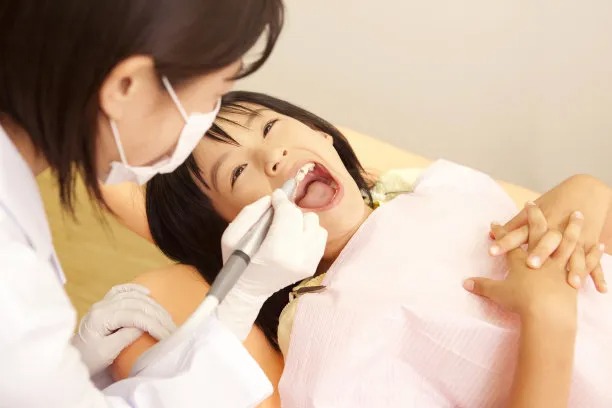Summary: Dental fillings are essential for repairing cavities and ensuring optimal oral health. However, to maximize the benefits and ensure effective recovery, patients must take essential precautions both before and after the procedure. This article explores key steps to prepare for your dental appointment, methods to manage discomfort post-filling, dietary recommendations for recovery, and important follow-up care to maintain optimal oral health. Understanding these aspects can significantly enhance your recovery experience and prevent future dental issues.
1. Preparing for Your Dental Appointment

Before receiving a dental filling, it’s crucial to adequately prepare yourself. Start by discussing all medications and medical conditions with your dentist. Some medications, particularly blood thinners, can affect the procedure. Ensuring your dentist is fully aware of your medical history can help them take necessary precautions during the filling.
Next, schedule your appointment at a suitable time when you can relax afterward. Having a filling can be a bit stressful, so choose a time when you wont have to rush back to work or other commitments. Allow yourself ample time to recover after the procedure.
Finally, consider arranging for a ride home if youre receiving sedation for the filling. Sedation can impair your judgment and motor skills, making it unsafe to drive. Having someone to accompany you can ease anxiety and ensure a smooth transition back home.
2. Managing Discomfort After the Filling
After getting a dental filling, you might experience some discomfort, which is typically normal. Over-the-counter pain relievers like ibuprofen or acetaminophen can help alleviate this discomfort. Always follow the recommended dosage and consult your dentist if you have any concerns regarding the medication.
While some sensitivity to hot or cold foods is expected, it’s essential to be cautious during this time. Avoid consuming extremely hot or cold foods and beverages for at least 24 hours, as your teeth may be more sensitive after the procedure. This will help reduce any discomfort associated with sensitivity.
In addition, it’s advisable to refrain from chewing on the side of the mouth with the filling until your dentist confirms it’s safe. Chewing on a new filling too soon can lead to discomfort or even damage the filling. Give your mouth time to heal before resuming normal eating habits.
3. Dietary Recommendations for Recovery
Adhering to specific dietary recommendations can aid your recovery. Initially, stick to soft foods for at least the first 24 hours after getting a dental filling. Foods like yogurt, applesauce, and mashed potatoes are excellent options that require minimal chewing.
Avoid sticky or hard foods that could tug at your filling or dislodge it, such as chewing gum or hard candy. These foods can jeopardize the integrity of the filling and lead to further dental issues. Pay attention to how your mouth feels and adjust your diet accordingly.
Finally, hydrate adequately by drinking plenty of water. Staying hydrated helps maintain your overall health and can facilitate the healing process. However, avoid consuming excessively hot drinks immediately following the procedure to prevent aggravating any sensitivity.
4. Importance of Follow-Up Care
Follow-up care post-filling is crucial for maintaining good oral health. Attend any scheduled follow-up appointments with your dentist, as they can assess the filling’s integrity and ensure it’s functioning correctly. Early detection of issues can prevent more extensive dental work in the future.
Additionally, its vital to establish a good oral hygiene routine. Brush twice daily and floss to keep your mouth clean and minimize the risk of new cavities forming around the filling. Consider using an antibacterial mouthwash to further combat bacteria.
Finally, keep an eye out for any unusual symptoms, such as persistent pain or changes in bite alignment. If any concerns arise, don’t hesitate to contact your dentist promptly. Staying proactive about your dental health will ensure optimal recovery and longevity for your fillings.
Summary:
Taking precautions before and after your dental filling is essential for your overall oral health. From preparation to managing discomfort and making dietary adjustments, these steps play a crucial role in your recovery. By adhering to these guidelines and maintaining regular dental check-ups, you can ensure your oral health remains exceptional and that your fillings last longer.
This article is compiled by Vickong Dental and the content is for reference only.
Vickong Dental
Vickong Dental is a large medical group established in Hong Kong in 2008 by professors from well-known medical universities in Guangdong and Hong Kong, as well as medical doctors from key national '985' universities (including Master's supervisors and senior professors). The chain of branches brings together expert dentists with PhDs and Master's degrees from Hong Kong and Mainland China, committed to providing high-quality dental treatment.
"Vickong Dental Practices the University Motto of 'Healing and Serving Society,' with a Stable Operation for Sixteen Years. It Has Been honored with Hong Kong Enterprise Leaders's Choice,' and is a Global Trusted Implant Center for the Nobel Implant System. Recommended by Hong Kong Metro Broadcast and Guangdong Television, it Serves Customers from Over Thirty Countries and Regions, Gaining the Trust and Favor of Citizens from the Guangdong-Hong Kong-Macau Greater Bay Area and Surrounding Cities.

Thousands of customers' unanimous praise
The most recognized and highly recommended dental service by customers in the Guangdong-Hong Kong-Macau Greater Bay Area
We Ensure You Receive Detailed Care and Attention Here
Hong Kong standards, Shenzhen prices, Your Trusted English-speaking dentists

Vickong Dental Medical-Grade Instrument Disinfection Process
Vickong Dental Medical-Grade Instrument Disinfection Process

Vickong Dental Chain: A Warm and Comfortable Environment for Treatment






Appointment Hours

Q&A
Why choose Vickong Dental?
Vickong Dental practices the university motto 「Medicine to Benefit Society」, with each branch bringing together highly qualified dentists with doctoral and master’s degrees from Hong Kong and the Mainland, and has maintained seventeen years of steady operation。Recipient of 「2024 Hong Kong Enterprise Leaders Brand」, 「2025 Hong Kong Enterprise Leaders Brand」, a Nobel Biocare Global Trusted Implant Center, and a brand recommended by Metro Radio Hong Kong and Guangdong TV。
To date, we have served customers from more than thirty countries and regions,earning exceptionally high word-of-mouth recognition and trusted recommendations from residents across the Guangdong-Hong Kong-Macao Greater Bay Area and surrounding cities
We have eight major branches in Zhuhai、Shenzhen,and a consultation and service assurance center in Hong Kong,so you can book a free consultation at any time for any questions,which is very reassuring.
If I do not accept the quotation after the CT scan, will I be charged??
No! As long as the actual treatment has not started, you will not be charged any fees.
Will there be any additional charges during the treatment process?
No, there won’t be any additional charges. Before treatment begins, we will clearly explain the treatment plan and its corresponding fees. Only after the patient agrees and signs the consent form will we proceed with the dental service.
Can I pay in Hong Kong dollars?
Yes. Vickong Dental accepts payment in Hong Kong dollars. The amount will be converted based on the exchange rate of the day, and the applicable rate will be clearly communicated to you in advance.
Can I reschedule my appointment at any time?
Yes. Please contact us via **WeChat** or **WhatsApp** as early as possible, providing your original appointment time and details, along with your preferred new date and time slot for rescheduling.













